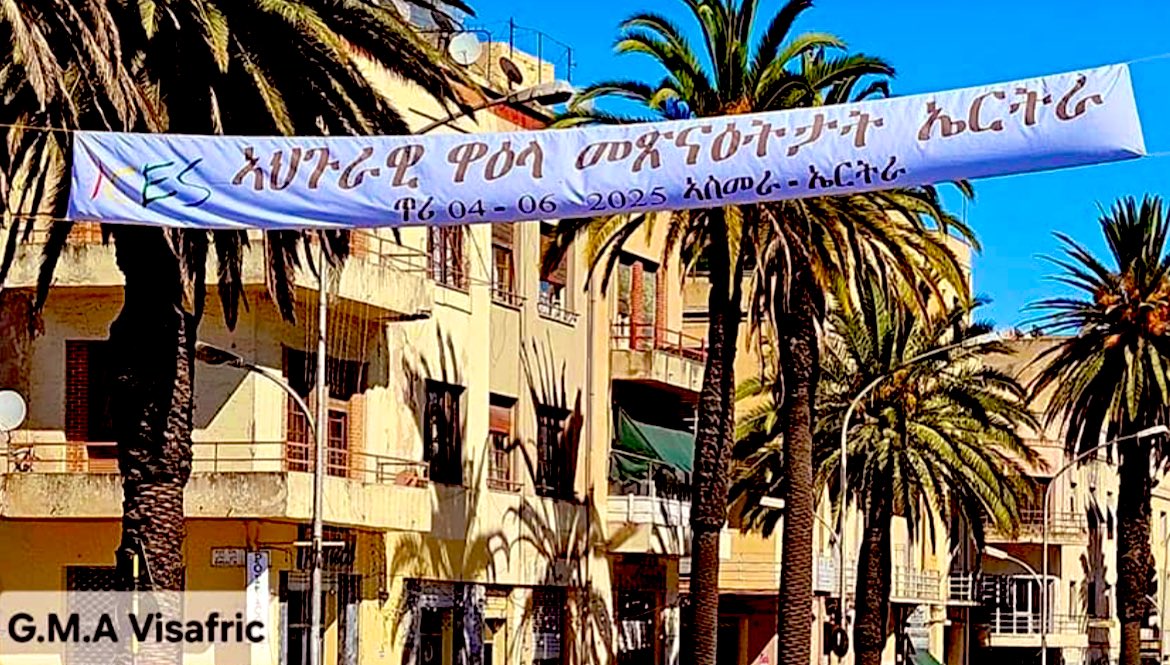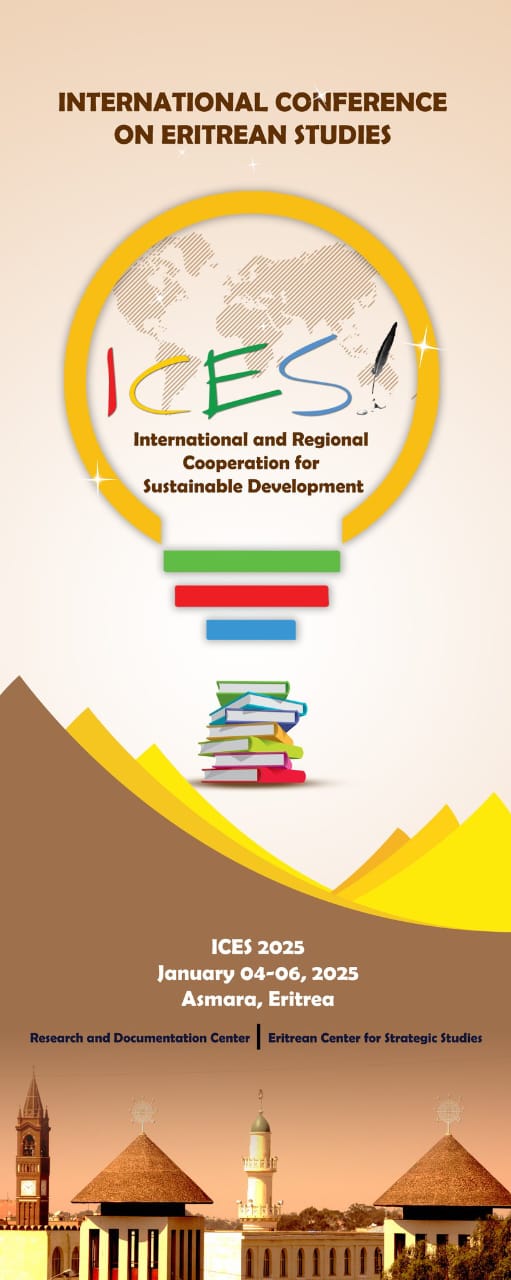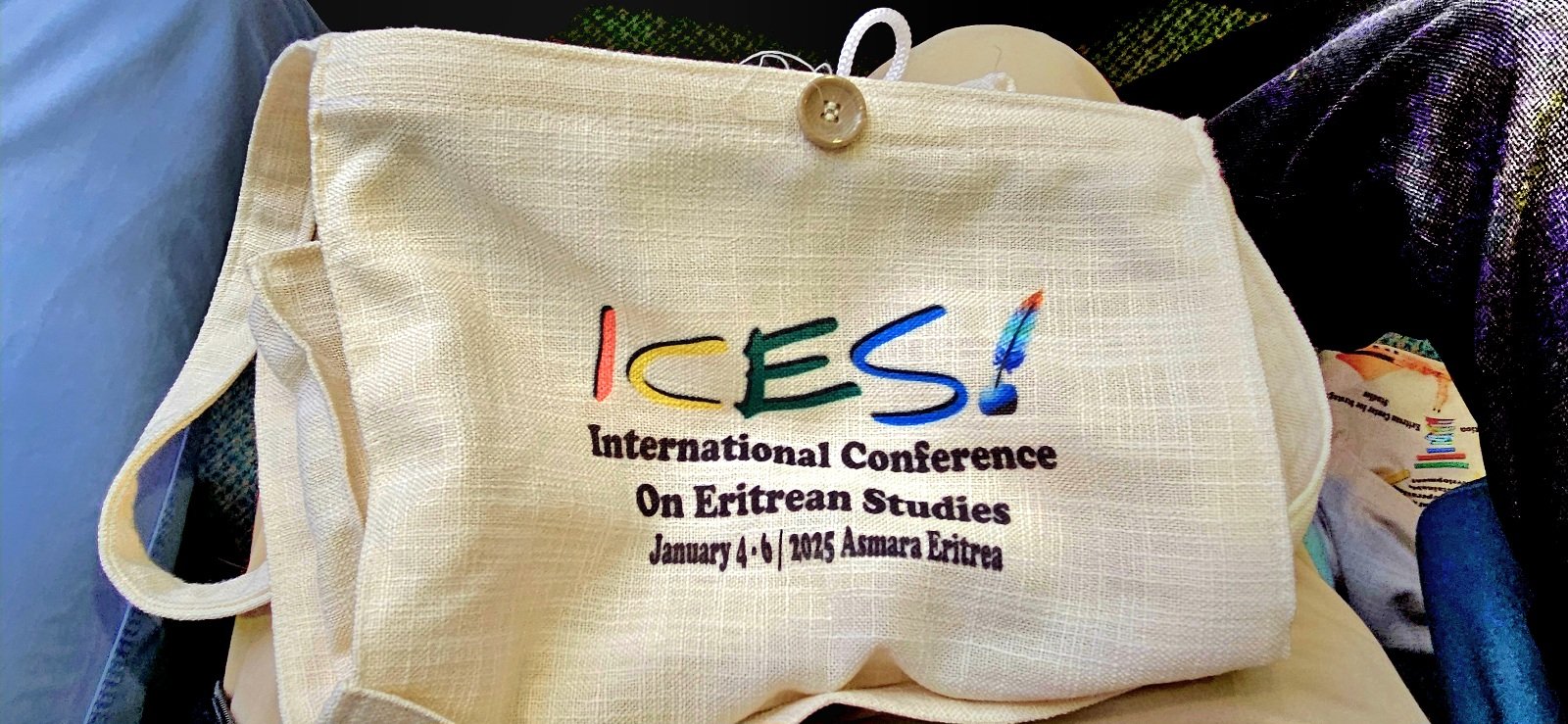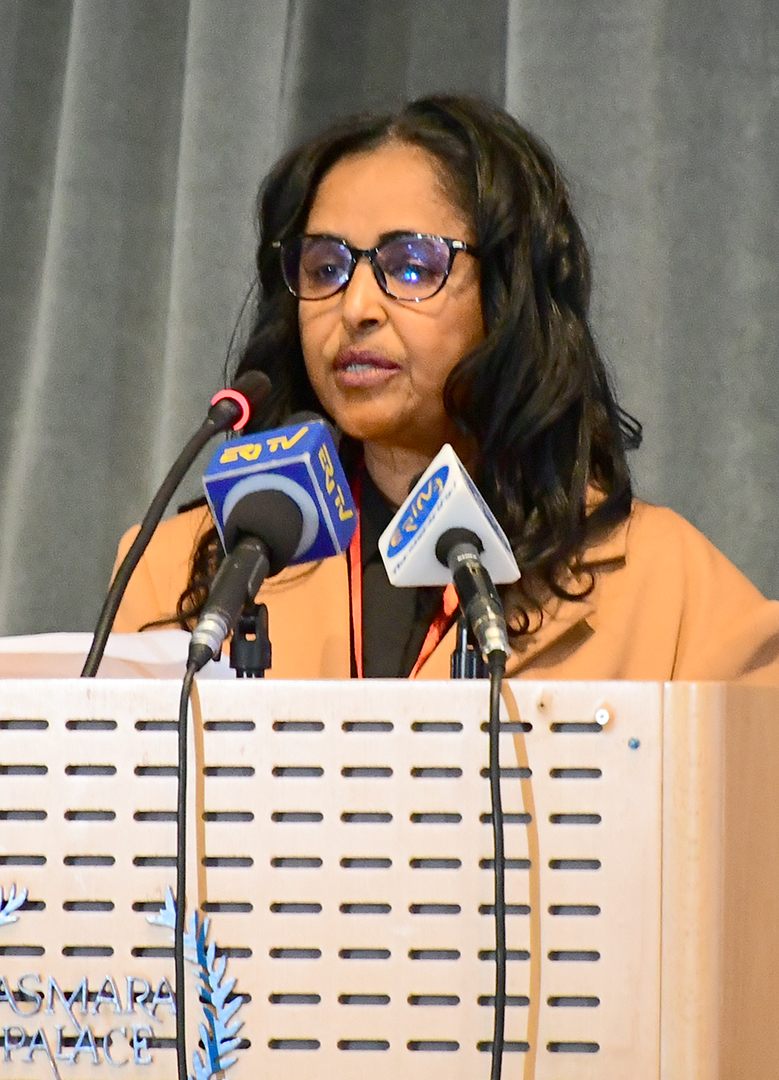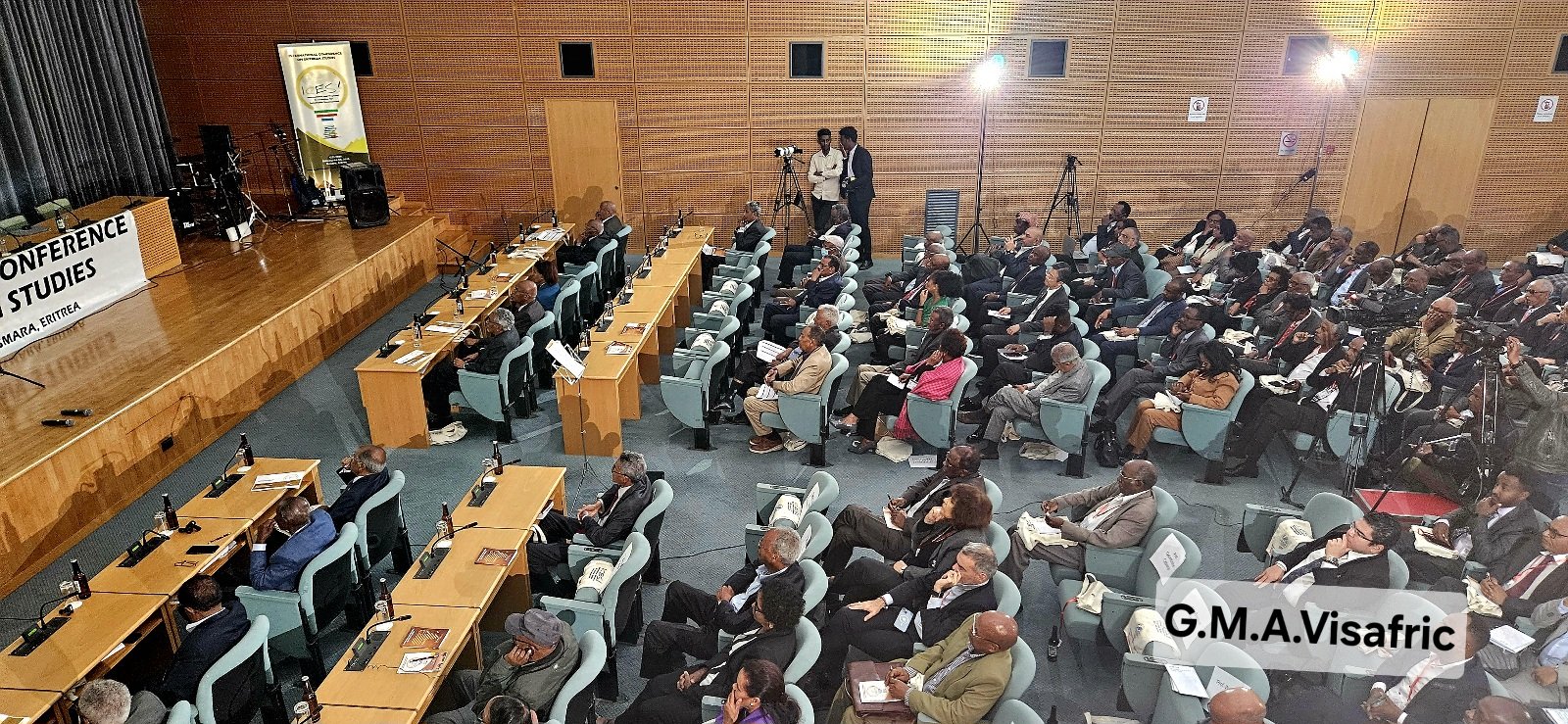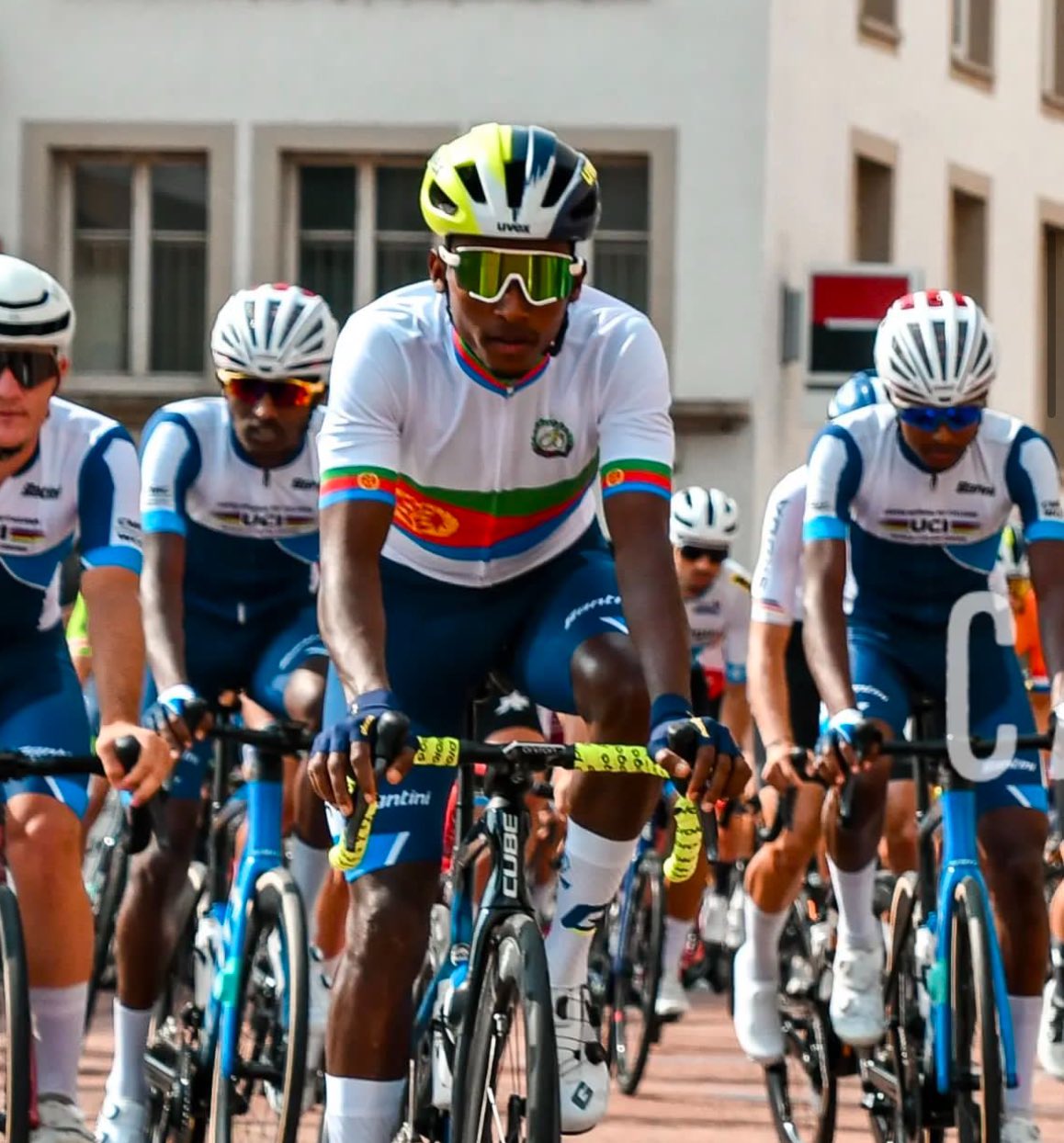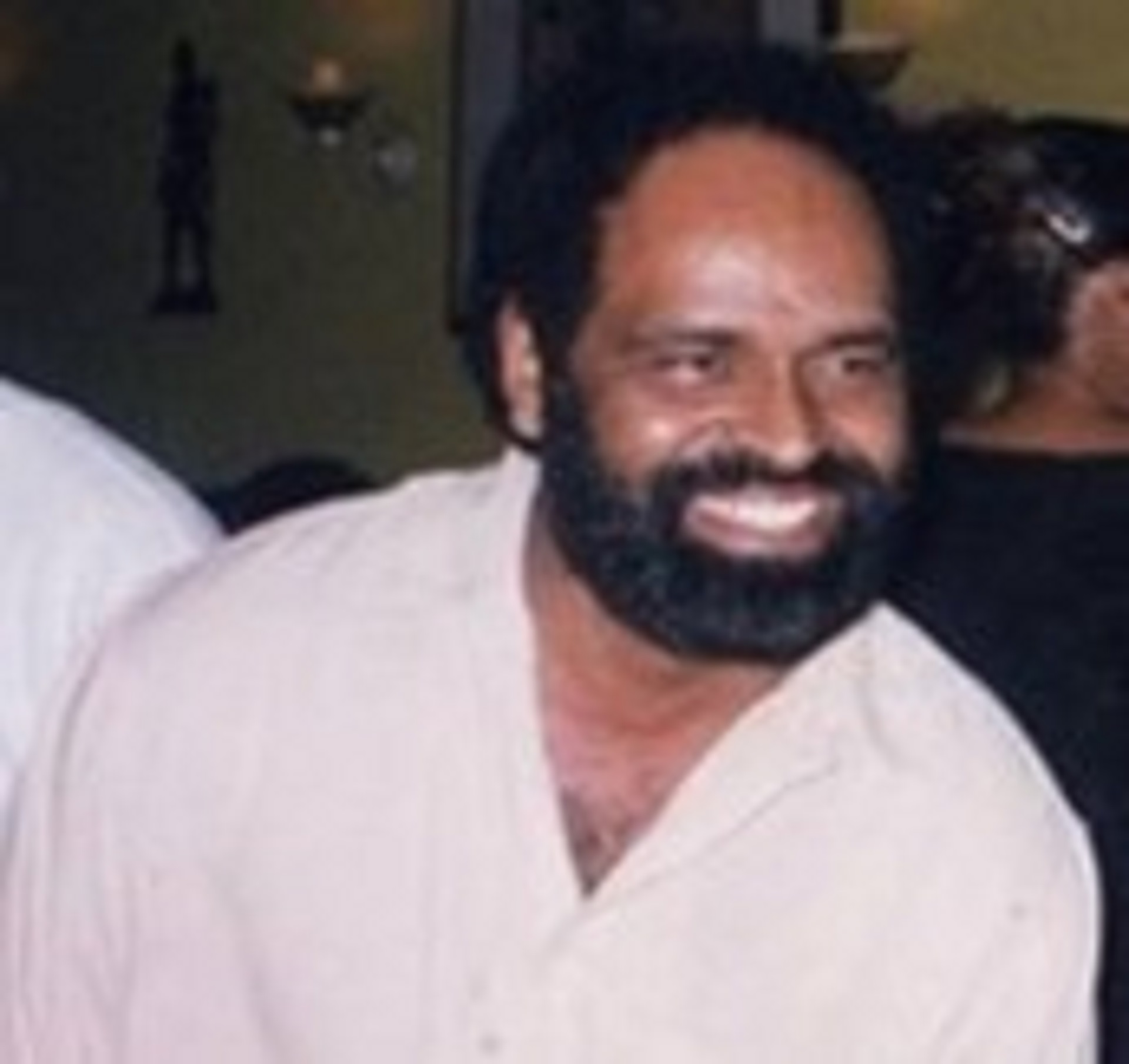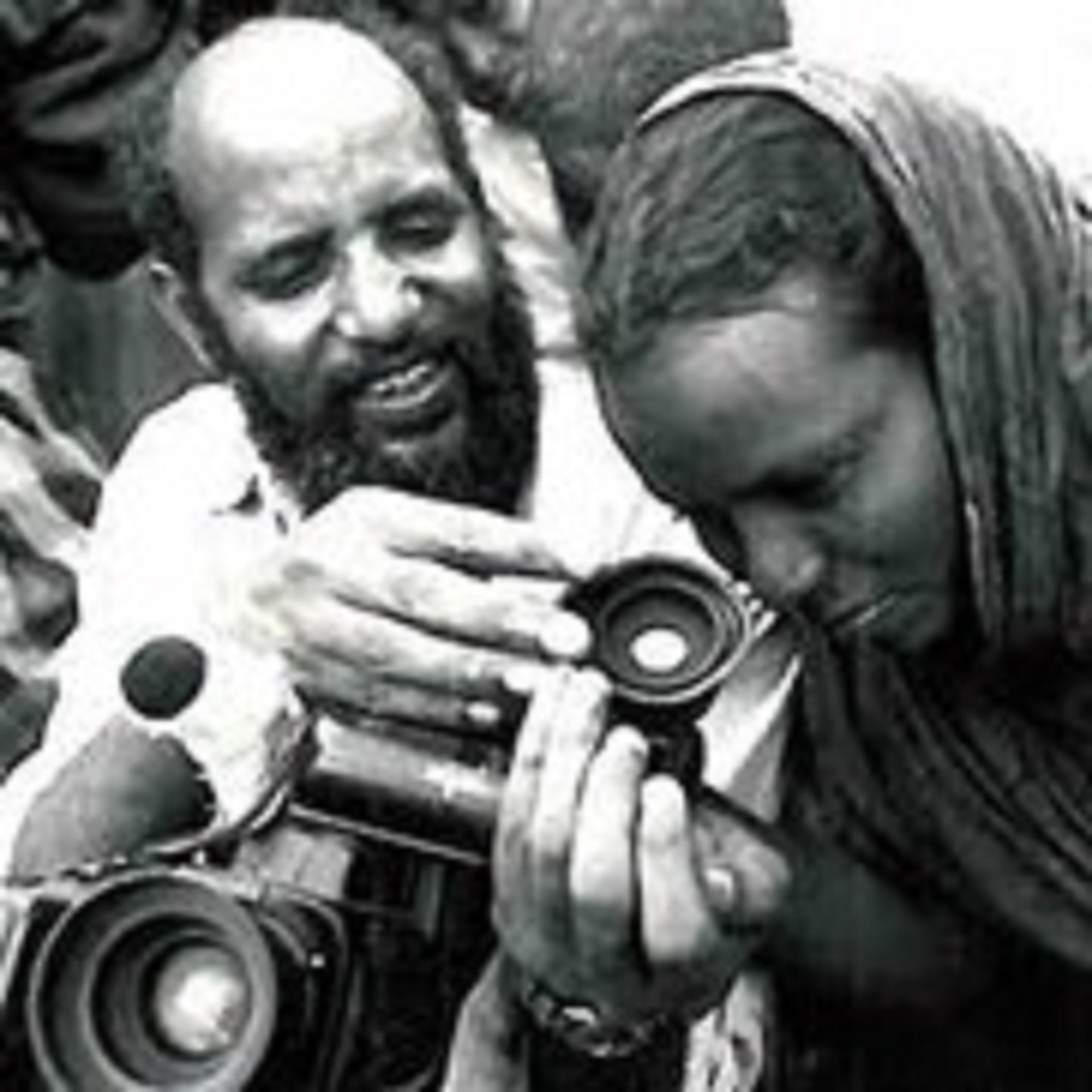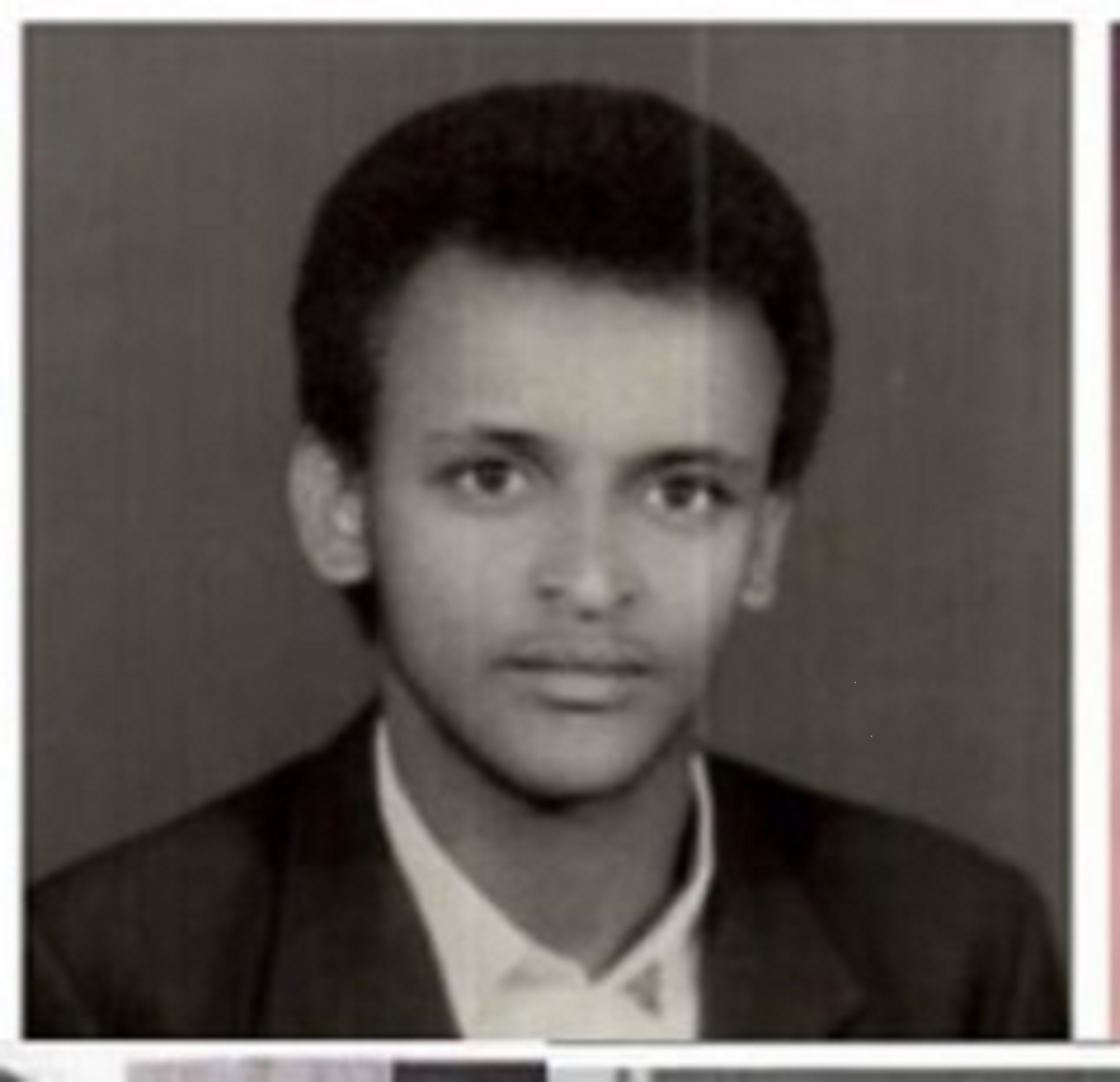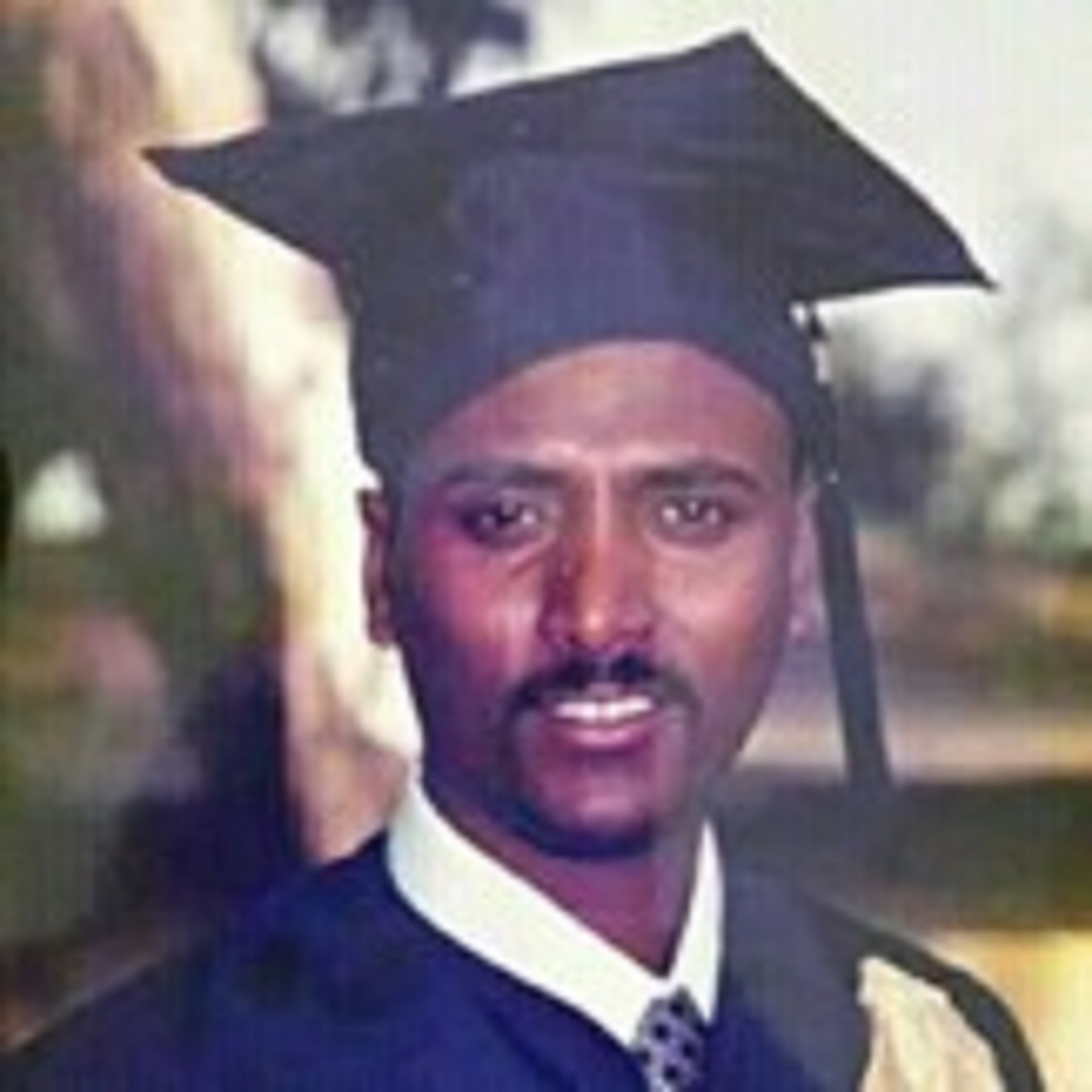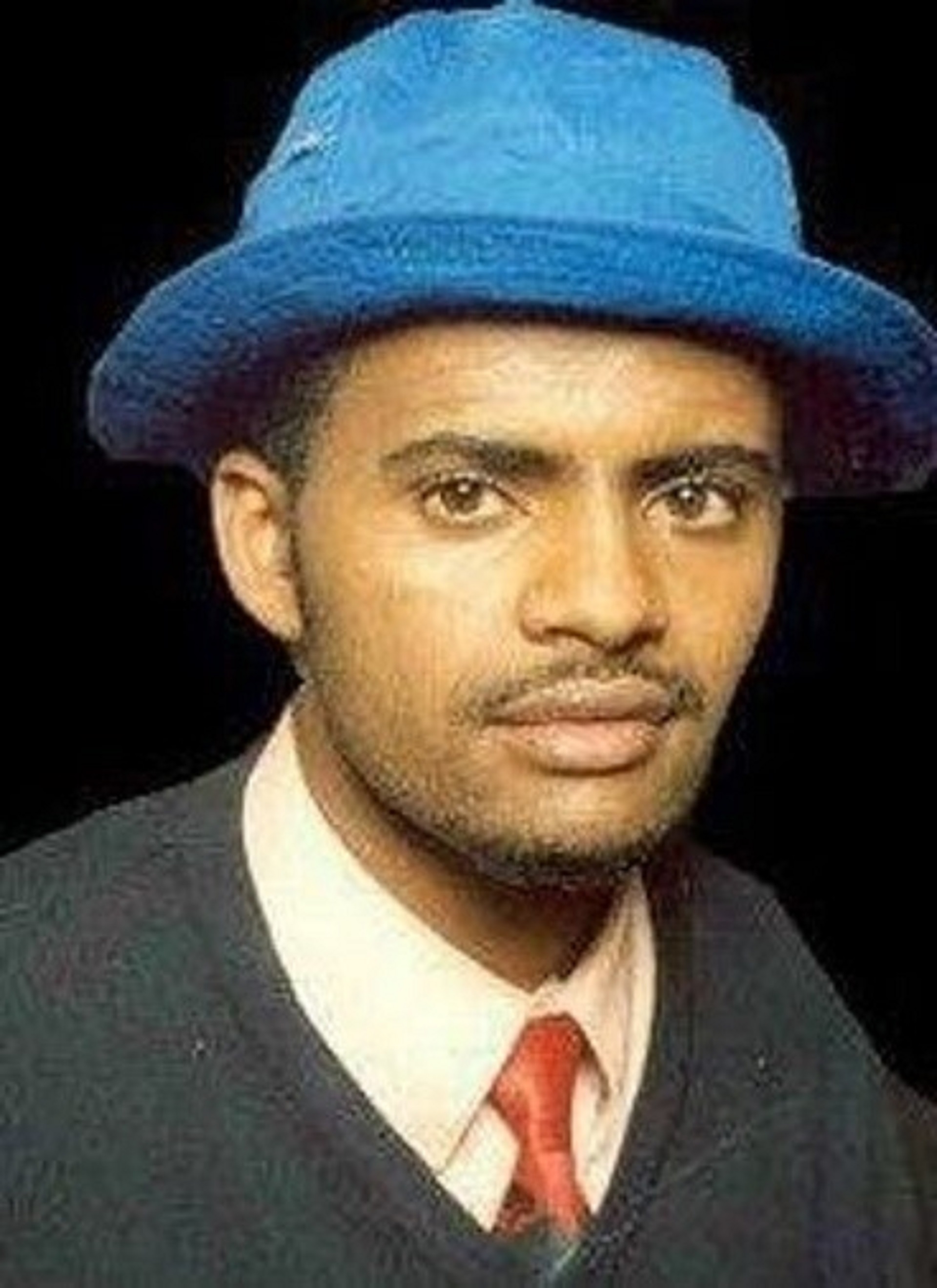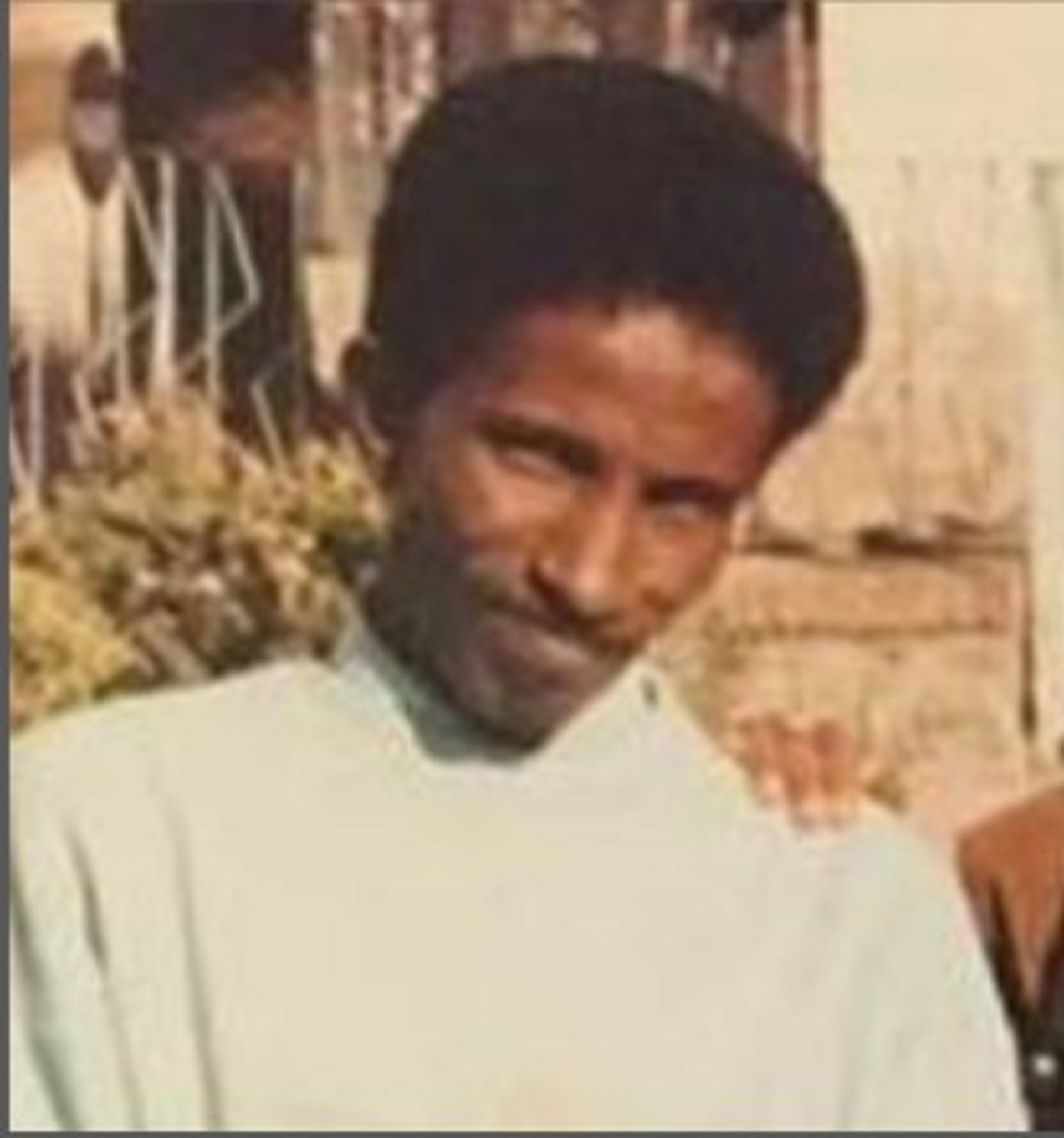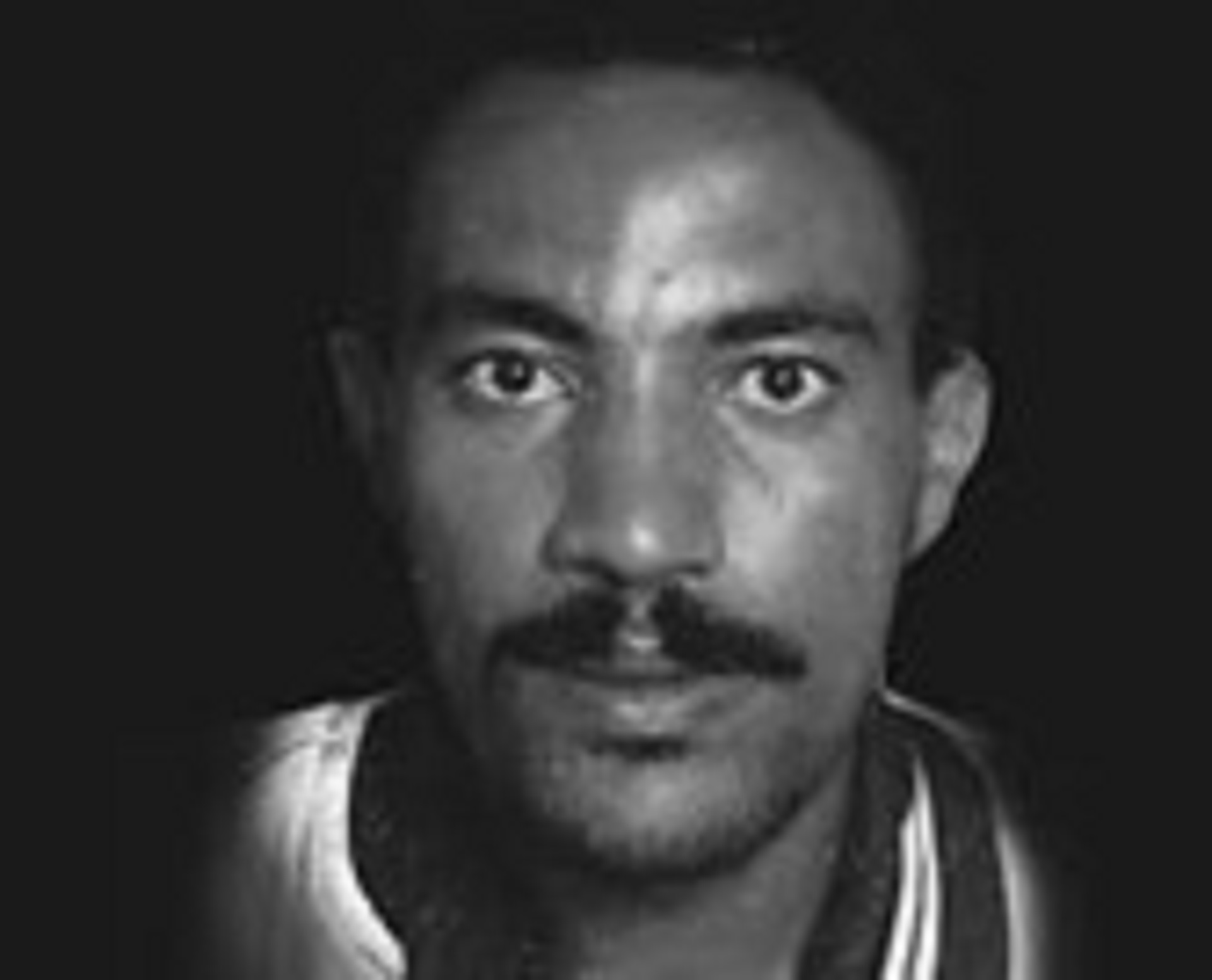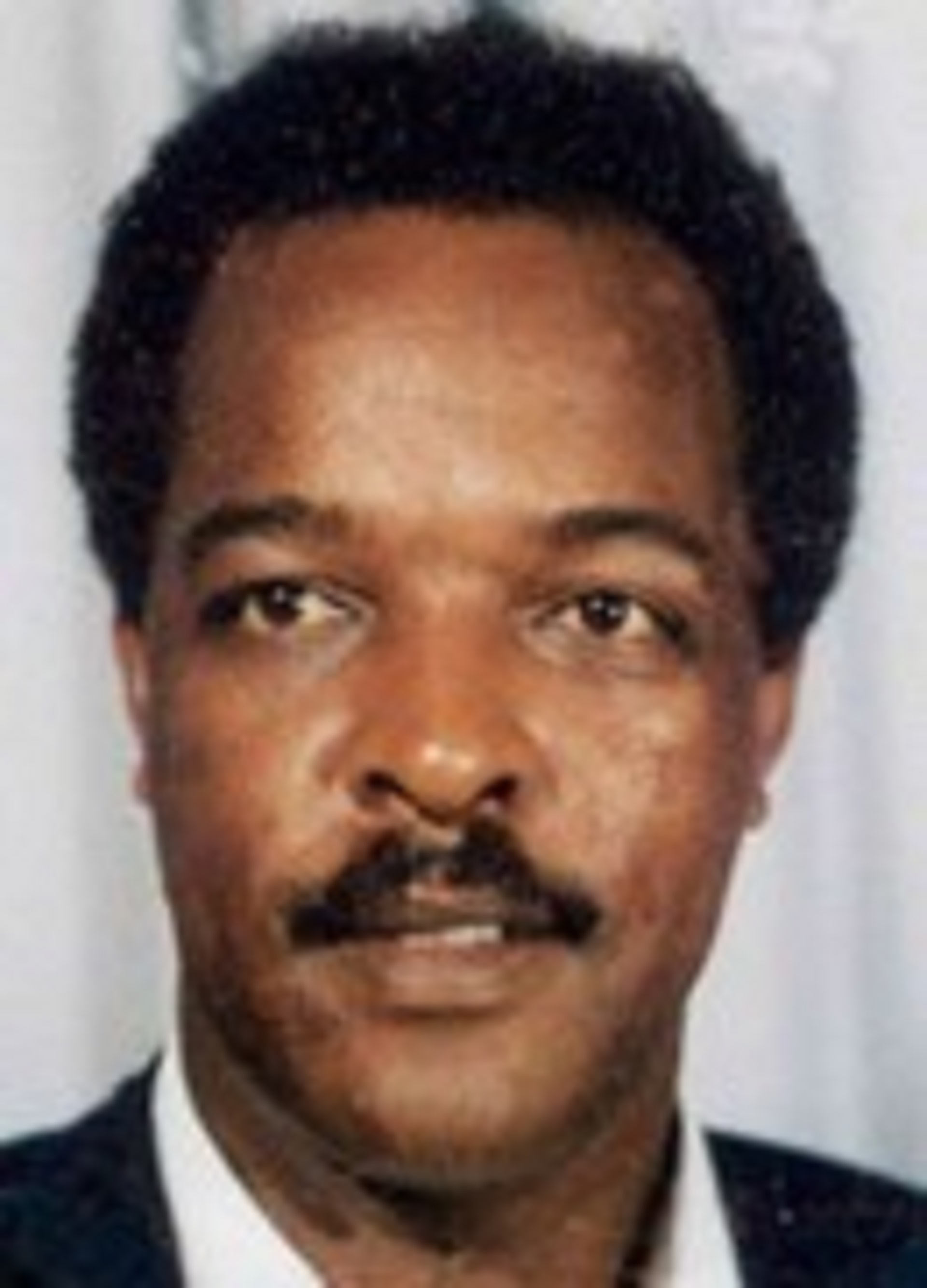

General
Keynote Address by Minister Yemane Gebremeskel on ICES Conference
International Conference on Eritrean Studies
Asmara, 4-6 January 2025
https://shabait.com/2025/01/04/keynote- ... onference/
Madame Chairperson, Dr. Halima Mohammed
Honourable Government and Senior PFDJ Officials
Excellencies Ambassadors, Members of the Diplomatic Corps and UN International Organizations
Distinguished Participants,
Invited Guests
Ladies and Gentlemen
Good morning,
Let me first congratulate all the Members of the Organizing Committee – both from the academic and relevant government institutions here at home as well as from our Communities in the Diaspora – for their commendable work in making this event a reality.
The research papers – on a broad spectrum of themes – slated for discussion during the next three days will, needless to emphasize, immensely enrich development-oriented academic research in the country.
They will also spur and crystallize vital networking among key national as well as foreign experts and stakeholders in all domains of vital national interest in the period ahead.
Furthermore, another invaluable spinoff of this Conference will be its impact and contribution in debunking and rectifying the stifling, negative narrative, on Eritrea. This has been pursued, for almost two decades now without let-up, by major legacy media outlets and associated think thanks.
The optimism must of course be tempered with a dose of realism.
As we all know, the defamatory campaigns against Eritrea never stemmed from paucity of information or from good-faith media misperception.
I do not wish to waste your time here to delve into anecdotal incidents. But there are so many instances in which reports and documentaries by visiting journalists were suppressed, or willfully altered, by senior editors presumably because, or under the implausible ruse, that they were “too good to be true”.
The fact is the negative media campaigns – the dogged portrayal of Eritrea in the most pejorative terms – were and remain, closely intertwined with the agendas of extraneous powers, who have long opted to pursue policies of regime-change for their own geopolitical interests and calculus.
Madame Chairperson
Distinguished participants,
Let me now revert to highlight, in very broad terms, Eritrea’s perspectives on current and unfolding international and regional trends as well as its domestic development policies and priorities.
As we all agree, these are very turbulent and trying times; by all historical metrics. The global security structure is literally under unprecedented and dangerous stress.

The spiral of inexorable escalation in Ukraine; mushrooming wars in Gaza and the greater Middle East; are fraught, perhaps for the first time after the Second World War, with precipitating a nuclear Armageddon; irrational and improbable as this doomsday scenario may have seemed in the past decades; or even a few years ago.
The world has of course seen calamities of monstrous proportions in earlier times. Due to the sheer magnitude of the destruction and human losses that they inculcated, the First and Second World Wars may represent the nadir or lowest point of humanity’s inexcusable failures. But slavery, colonialism and the multiple proxy wars that have, and continue to rage, especially in the Global South were, and are no less tolerable in terms of humane and ethical considerations.
Indeed, if our so-called civilized, technologically-advanced, post-industrial world has been spared from another global conflagration in the past eighty years, this was not due to some higher moral calling, statesmanship, or wisdom. It was not based on a judicious architecture of global governance. Sadly, the fragile peace was, and remains predicated, on a raw and crude balance of terror. Due to what is termed as Mutually Assured Destruction or MAD as the acronym cynically suggests.
The nuclear powers did not enjoy the privilege of success in annihilating their adversaries through pre-emptive first strikes. It was this binary balance of terror that constituted – for the last eighty years – the sole and primary basis of deterrence and fragile peace.
Tactical and political brinkmanship and posturing aside, there are worrying signs now that this paradigm might shift for the worst. Some, worst-case analysists are even invoking what is known as the Thucydides Trap to emphasize historical precedents for the high probability of the outbreak of war in this period of global transition of hegemony.
Innate and systemic aberrations of the so-called rules-based international order are not limited, unfortunately, to the architecture of global security. Degrees of magnitude and intensity aside, the global legal and economic architectures are also dithering from similar and profound anomalies.
In legal terms, the UN remains emasculated and marginalized in global affairs of vital impact and substance. As amplified in the tragic situation in Gaza, the six-decades-old unilateral sanctions on Cuba, and other similar cases, the Resolutions of the UN General Assembly remain, invariably, toothless.

As it happens, the moral voice of the global community that should have reinforced our ethical compass has been routinely rendered irrelevant and reduced to sheer exercises in futile, Public Relations, stints.
Similarly, the UN Security Council, which has exclusive purview on grave matters of regional and international security, seems to have forfeited its legal authority on various instances due to structural and systemic anomalies and loopholes.
The latest and most appalling instance was not only its failure to impose a ceasefire on Gaza. What is more astounding is its attempts to rationalize non-adherence to this resolution – which elicits punitive action in accordance with Chapter VII of the UN Charter – as optional and dependent on the discretionary political will of the culpable party.
And in general, structural unfairness embedded in the veto power; routine political horse-trading in the adoption of resolutions; bloc politics and overriding interests of the major powers have always rendered the UNSC as a partisan and politicized entity; not the legally flawless and morally authoritative body cherished by the vast majority of humanity.
The architecture of global economic governance – which is a vast subject and beyond the scope of this brief presentation – has been equally rendered dysfunctional in the duplicitous, rules-based international order on account of various parameters.
The modus operandi of the Bretton Woods Institutions, heavily influenced as they are by value-laden ideological biases and political conditionalities, have vastly reduced their efficacy in providing transformative and effective development support – through concessional loans and grants – to countries in the Global South.
Gross and widening gaps of wealth between the rich North and underdeveloped countries in the Global South as well as the huge chasm of income within these countries – especially in the post-industrial North in which less than 0.1% of the population own 90% of the national wealth – are not only morally repugnant but also recipes and fertile grounds for breeding intractable instability and chaos.
And these days, the inherent absurdity in the global economic governance architecture seems to have scaled another height. Sovereign wealth and other assets of an adversarial country are considered as legitimate ransom. They can indeed be arbitrarily weaponized for imposing political solutions in flagrant breach of all accepted economic orthodoxies and the nominal rules of the game.
All these aberrations – in the security, legal and economic global architectures of governance – are occurring at a time when technological advancement has achieved unprecedented progress in all its dimensions.
The disconnect between reality and what is possible and desirable, remains immensely and absurdly huge.
Humanity can indeed work out a viable and sustainable global system that can advance human dignity under a common Global Social Contract of compassion, fairness, and solidarity.
This is simple common sense. It is what is arguably cherished by the vast majority of the peoples of the world.
Let us be more clear: the choice is not necessarily between antagonistic, dogmatic, conventional ideologies. Nor is it between a uni-polar, bi-polar or multi-polar systems of embedded and inevitable confrontation.
The choice is for a compassionate and humane architecture of global governance under transparent, fair, and equitable rules of the game.
These precepts were succinctly articulated in President Isaias’s remarks at the 15th BRICS Summit, held in South Africa in August 2023, when he argued for concerted action to rectify the flaws and deficits of the prevailing global governance architecture whose defining features were and remain, dysfunctional, non-inclusive and unfair, rules and regulations. The President went on to say”, and I quote, “…the lofty aspirations of humanity as a whole is for a just and fair global order where justice and the rule of law prevail; where nations and peoples forge meaningful and symmetric ties of cooperation and partnership on the basis of respect for national independence and sovereignty; for societies anchored on compassion and social justice”.

These are some of the challenges – and the list is far longer than what has been presented above in skeletal format – that true and dispassionate academic research has to grapple with. Hopefully, some of these challenges will be broached in the papers that will be presented in the Conference to constitute topics of intense and vibrant discussion.
Madame Chairperson
Distinguished Participants,
Let me now revert to the African continent and our region in particular.
The developmental and security challenges and trends in the African continent as a whole and the wider Horn of Africa, Nile Basin and Red Sea neighborhoods in particular, can only be gauged against the backdrop, and within the constraints and parameters of, the fragile global governance architecture outlined above.
Africa’s daunting challenges are too evident to merit much elaboration. Indeed, as the grim statistics amplify – Africa’s share of world trade stands at a paltry 2/%, while extreme poverty affects over 460 million of its population. Few exception notwithstanding, Africa continues to export raw-materials to the global market at lowest prices; it remains overburdened and paralyzed by debt; and, it continues to be bedeviled by perennial internal conflicts.
These malaises are counter-balanced by substantial positive attributes that can propel Africa on the path of rapid and sustainable development once the underlying problems are fully addressed and resolved.
Africa is reportedly endowed with 60% of global natural resources, especially significant reserves of critical minerals vital for global green transition. It is blessed with a young, dynamic and educated population as well as large Diaspora whose expertise can be tapped. Africa has also bright prospects in reducing – at a fast pace – the knowledge gap with the developed North if it pursues the right mix of policies on its human capital.
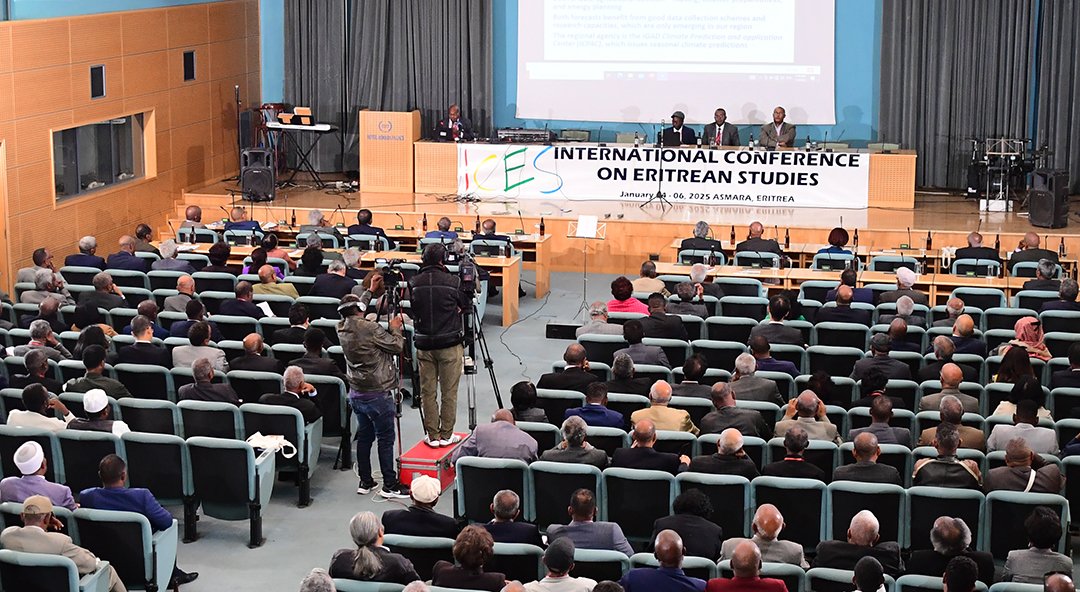
But its options and policy choices for domestic development cannot be seen in isolation from the collective and purposeful measures that it has to pursue to assert its rightful place in the global power pecking order.
Indeed, as Eritrea has consistently advocated in the various Summits of Partnership between Africa and its prospective interlocutors, Africa needs to accomplish, first and foremost, its homework with full diligence to ensure that the rules of engagement ultimately become symmetric and mutually beneficial. This will require sober and meticulous work and consensus building that transcends nominal and cosmetic results such as inconsequential membership at the G20 or allocation of permanent seats for a couple of African countries at the UN Security Council.
Closer to home, the situation in our immediate neighborhood is not different, in substantive terms, from the continental reality.
Naturally, and for reasons of history, geographic proximity, pragmatic calculus, and other cogent considerations, Eritrea’s policy perspectives on continental African cooperation and partnership are primarily predicated on a modular approach. This policy perspective was first articulated at the OAU Summit held in Tunis in 1994.
In Eritrea’s views, while the aspirations for fostering continent-wide institution of African effective cooperation is laudable in terms of broad abstract principles, realism dictates that this is implemented – over a long span of decades – through the establishment and consolidation of regional building blocks.
In the Horn of Africa, IGAD was revitalized in 1995 to include broader scope of economic cooperation and integration as well as Inter-State conflict resolutions through the expansion of its original mandate that was confined to combating drought.
But all these ideals remain – to date – mere aspirations that could not crystallize into visible and tangible programmes of action.
Furthermore, institutionalized ethnic and religious exclusivity and polarization continue to remain the Achilles heel in the region accounting for cyclical internal conflicts that have, and continue to inculcate, huge loss of life and physical destruction.
Debilitating dependency on, and entrenched tendencies and proclivities to act as surrogates of global and regional hegemons, have also encumbered independent and home-grown development policies and options. Ill-advised ambitions of territorial aggrandizement and expansion, often induced by overriding external agendas, have and continue to constitute avoidable factors of additional regional destabilization; thereby compromising the national and regional interests of the nations and peoples of the Horn of Africa.
In a nutshell, and without sounding in any way prescriptive, there are compelling arguments for the region to revisit and map-out appropriate and functional National Social Contracts that foster and bolster internal unity and cohesion. Within this framework, regional cooperation can be seriously pursued with purposeful and incremental programmes and timelines on the basis of respect of each other’s sovereignty and territorial integrity.
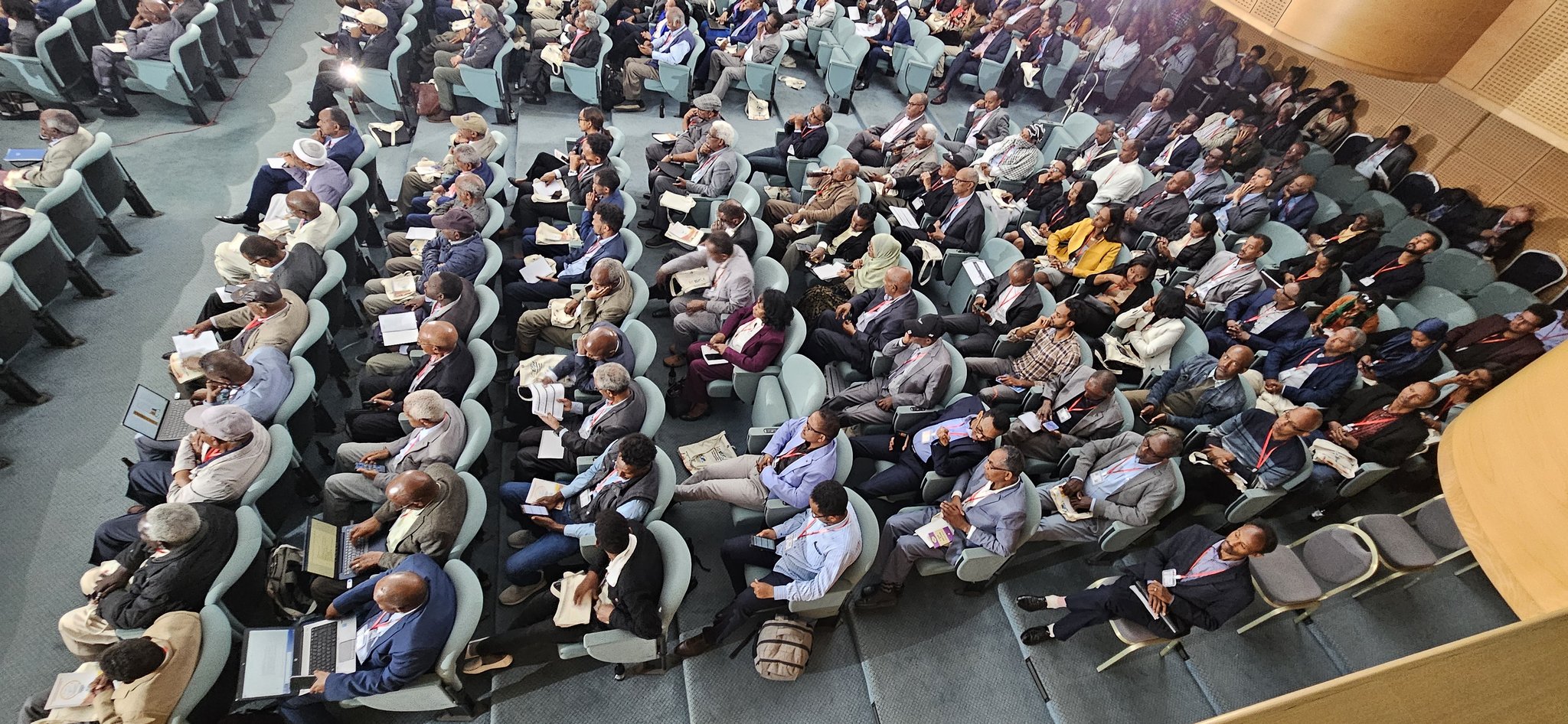
Madame Chairperson
Distinguished Participants,
Let me now revert to GOE’s domestic development approaches and policy perspectives within the broad global and regional ecosystems outlined above.
Eritrea’s endowments are substantial by all standards. The blue economy consisting of considerable marine resources; locational advantages; ports as well as pristine beaches and islands can be leveraged to catalyze and expedite rapid economic growth under conditions of congenial regional peace and stability.
The extractive industry; agriculture; revived manufacturing geared on educated human capital and knowledge-intensive subsectors enmeshed in global networks and value-chains; are other prospective sectors that have huge potential.
And above all, Eritrea’s fundamental policy precepts that imbue highest priority to investment in human capital will concretely guarantee qualitative dividends for the longer term. This sober approach is underpinned by the profound conviction that singular focus and dependence on finite resources – which have to be exploited judiciously for reasons of sustainability and to preserve what must be preserved for posterity – has limited viability and is ultimately fraught with irreparable distortions.
The policy precept is also closely intertwined with Eritrea’s over-arching commitment to Social Justice in all its manifestations and dimensions.
Free education from Kindergarten to the tertiary level, and provision of highly subsidized health services – including waiver of all payments for those without any means when necessary – so as to ascertain equal opportunities and a level-playing field; greater focus on deprived areas; narrowing the urban-rural gap in terms of allocation of budgetary resources for physical and social infrastructure; are pursued rigorously to advance this policy commitment.
It must be emphasized here that Eritrea’s Social Contract, hinged as it is on comprehensive Social Justice, does not stem from a humanistic philosophical and political convictions alone.
Embedded in the philosophy is the keen and implicit tribute to, and recognition of, Stakeholder rights; the additional acknowledgement that Eritrea is a nation whose citizens have all paid heavy and almost unparalleled sacrifices to assert and defend their inalienable human and national rights. As such, they deserve their proper share in the national pie.
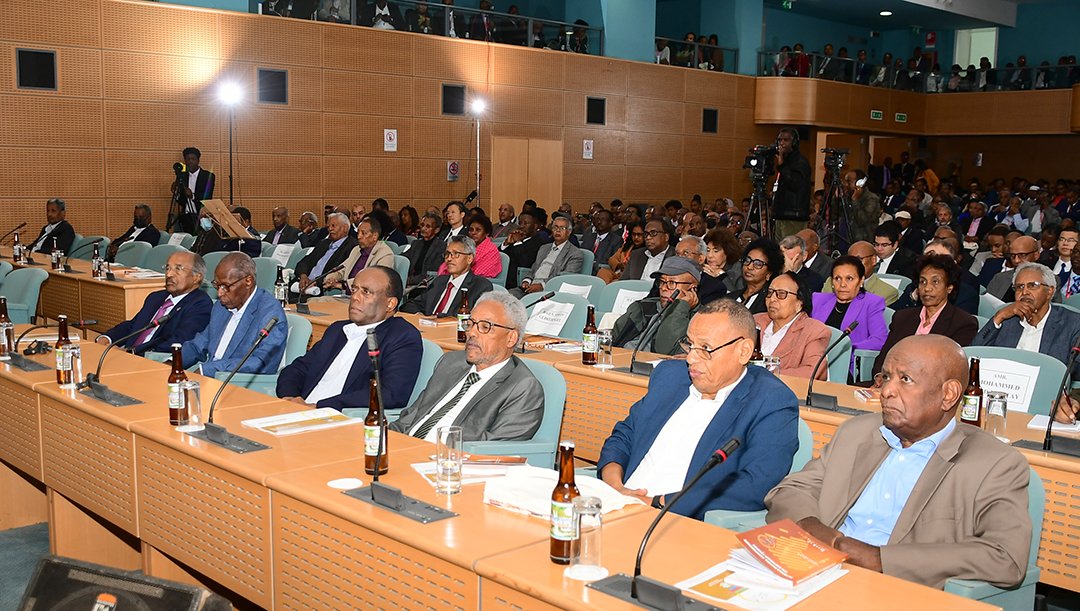
But in spite of these purposeful policy perspectives, Eritrea’s post-independence developmental achievements have not been commensurate with its relentless efforts in the past three decades or in terms of its aspirations and latent potentialities.
Imposed wars, unwarranted sanctions, and related adversities have compounded the generic global and regional hurdles described above. Let me also emphasize that instead of making reparations for the damage incurred for almost ten years until 2018 by the unwarranted UNSC sanctions, the US and the EU have slammed new and unilateral sanctions against Eritrea’s defense and security institutions in the past three years. The raft of sanctions imposed by the Biden Administration target the Eritrean Defense Forces; the PFDJ; and their respective Institutions including the Army Chief of Staff and the Head of PFDJ Economic Affairs while the EU’s coordinated measures are focused at Eritrea’s National Security Office. These deplorable acts, essentially concocted to weaken and downgrade Eritrea’s economic and defense capabilities, only expose their entrenched policies of hostility.
All these cogent realities amplify the interlinked and symbiotic global and regional challenges that Eritrea will continue to grapple with in its focused and full-fledged pursuit of national development and growth.
In this context, it is gratifying to note that the Conference will address all these interrelated themes in greater depth in its proceedings in the next three days.
Let me conclude by wishing you the best of success in all your proceedings
I thank you!
____________
